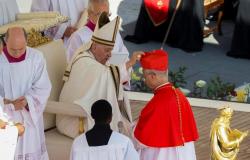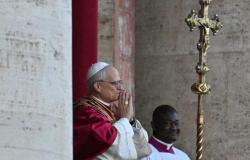
In a global context marked by the uncertainty of tariff policies, trade tensions and the evolution of geopolitical alliances, a constant remains: Morocco continues to be a major strategic partner of the United States on the African continent.
Donald Trump’s first term as president was marked by the reconnaissance by the United States, in 2020, of Moroccan sovereignty over Western Sahara. At the start of his second term, this commitment was reaffirmed by his Secretary of State, Marco Rubio. During a recent meeting with the Moroccan Foreign Minister, Nasser Bourita, Rubio reiterated that Morocco’s autonomy proposal for Western Sahara was “serious, credible (and) the only basis for a just and lasting solution to the dispute”.
This is the last iteration of a strategic bilateral partnership of several centuries. Morocco and the United States have been maintaining solid relations, based on mutual interests for more than two centuries. Sultan Sidi Mohammed Ben Abdallah initiated this friendship in the 18th century, when Morocco became the first country to recognize the newly independent United States by announcing that all shipping ships could freely enter the Moroccan ports.
Trade and diplomatic relations between the two countries began in 1786 with the signing of the American-Moroccan peace and friendship. The close relations that arose of it led to the establishment of an American diplomatic mission, which was accommodated in the astonishing Institute of American Legation of Tangier for Moroccan studies for almost 150 years. It was in particular the first property of the United States government in another country.
The strength of this bilateral relationship manifested itself throughout the 20th century. During the Second world War, Morocco became a key place for Operation Torch and the Casablanca conference, which were part of the efforts made by the Allies to prevent the expansion of the influence of the axis in North Africa.
The United States has also supported Morocco’s independence from France, thus launching the basics of future relations. After the independence of Morocco in 1956, the United States quickly recognized the new state and in-depth the existing diplomatic, security and economic cooperation.
Morocco has long been a privileged destination for American investments.
Zaid M. Belbagi
During the Cold War, Morocco was officially not aligned, but it actually served as a reliable American ally against the spread of communism in North Africa. King Hassan II played a moderate role in Arabic politics and maintained close relations with Washington during this period. Morocco has granted the American forces of transit and access to Moroccan air bases, and the kingdom received more than $ 400 million ($ 1 = 0.88 euros) of American aid between 1957 and 1963.
For decades, through their economic and military aid, the United States has indirectly supported Morocco’s claim on Western Sahara.
Based on this solid basis, bilateral relations continued to evolve at the end of the 20th century by emphasizing diplomatic cooperation and the fight against terrorism. This period was marked by several high-level notable visits, such as the meeting of King Mohammed V with President Dwight D. Eisenhower in Washington in 1957, and the visit of the vice-president Richard Nixon in Morocco the same year. The next monarch of Morocco, King Hassan II, visited six American presidents during his reign.
Morocco has become a natural partner of the United States for peace and prosperity, given its position as a gateway to Africa and the Middle East, its proximity to Europe and its interior stability.
In recognition of Morocco’s commitment to regional stability and security, the United States has appointed it in 2004 as a major NATO member ally. Bilateral cooperation in the fight against terrorism, several decades, includes the exchange of information, regional security initiatives such as the Trans -Saharan partnership of fighting terrorism, and joint military exercises such as African Lion which takes place each year. The efforts made by Morocco to fight against radicalization and violent extremism align with the American objectives in the region.
Economic and commercial relations constitute another cornerstone of bilateral relations, a free trade agreement having been signed in 2006 to mark these links. The two countries exchanged more than $ 7 billion in 2024, an increase of 37% compared to the previous year. Fertilizers, vehicles and agricultural products are among the main products exchanged.
-Trump’s recent announcement on customs tariffs imposed a basic tariff of 10% in Morocco. Although it is a challenge for bilateral trade, this rate is one of the lowest in North Africa and could allow Morocco to find growth opportunities while other partners in the region, and Asia, are confronted with much higher customs duties.
Morocco has long been a privileged destination for American investments, which represent more than 30% of all foreign investments in the country, or more than $ 750 million. Nearly 120 American companies are present in Morocco, especially in the manufacturing, real estate, telecommunications, tourism and energy sectors.
Substantial American investments have also been made in the automotive industry and vehicles in the country, such as the expansion of Lear Corporation. The big names of the aerospace, such as Boeing, also made significant breakthroughs on the Moroccan market.
All this clearly indicates that the solid investment climate of Morocco offers opportunities to American companies.
In recognition of the geostrategic position of Western Sahara and its potential to open trade with Africa, the United States is eager to invest in Dakhla and the region. In 2022, Danforth Investors, Global Special Projects and Sec Newgate US signed two memoranda of understanding with the Dakhla-Oued Eddahab Region Council to promote American investments in Dakhla.
With continuous expansion in several areas, relations between the United States and Morocco remain solid, more than two centuries after their genesis. They will continue to develop thanks to new programs such as the Atlantic initiative of King Mohammed VI, which aims to provide the landlocked countries in the Sahel access to the Atlantic Ocean thanks to the Moroccan infrastructure. American investments will provide significant support for the realization of this vision.
There is also a strong potential for collaboration in emerging industries such as renewable and green energies, digital infrastructure and space technology.
When Trump was elected president for the first time, the central role of Morocco in regional peace was recognized by the Abraham agreements. The recent reaffirmation of this feeling by Rubio is a good omen for the future of links between the United States and Morocco during this period of global political uncertainty and increasing withdrawal from the United States.
Morocco therefore remains a vital and proven strategic partner for the United States, because of its interior stability, its geographic location and its commitment to the fight against terrorism.
As a gateway to trade and diplomacy with Africa, Europe and the Middle East, it can be a lucrative pillar for the United States in the new world order.
Zaid Mr. Belbagi is a political commentator and advisor to private customers between London and the Gulf Cooperation Council.
X: @moulay_zaid
Editor’s note: the opinion expressed in this page is specific to the author and does not necessarily reflect that of Arab News in French.
This text is the translation of an article published on ArabNews.com







